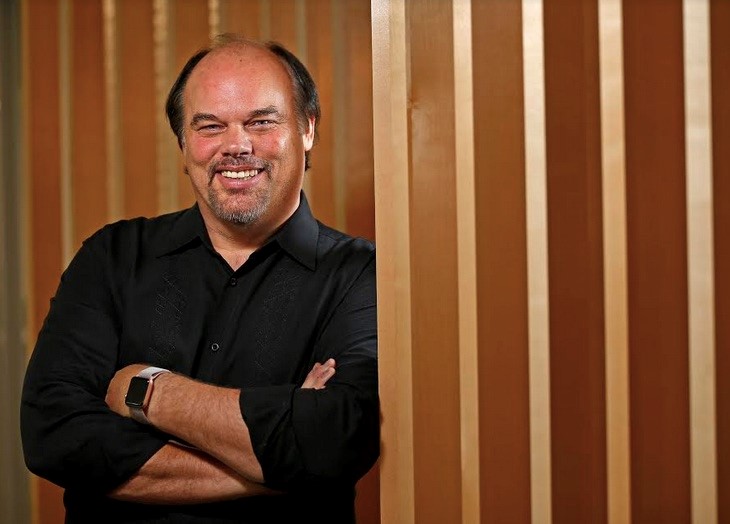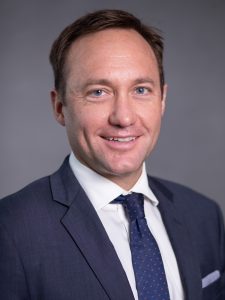In the next years, the world will experience unprecedented technological progress, enabled by artificial intelligence (AI). Dave Copps, CEO and co-founder of Worlds, argues that AI will empower the new era of abundance, and organizations that embrace this new technology will have a competitive advantage. Dave discusses how the convergence of The Internet of Things (loT) and AI will create the ability for organizations to measure, predict, and optimize energy sector operations in innovative ways.
Event recap
On April 17, 2020, the Atlantic Council Global Energy Center hosted the fourth installment in the new EnergySource Innovation Stream series. Building off the Global Energy Center’s EnergySource blog and soon-to-be-announced EnergySource podcast, EnergySource Innovation Stream highlights new energy technologies with the potential to reshape the global energy system through discussions with the companies and individuals working diligently to bring those innovations to market at scale.
The stream featured Dave Copps, chief executive officer and co-founder of the startup Worlds, a platform that allows machines to see and sense the world like humans do. Randolph Bell, director of the Global Energy Center and Richard Morningstar chair for global energy security at the Atlantic Council, offered introductory remarks and moderated the discussion.
Copps started the discussion with an overview of the history and proliferation of automation, artificial intelligence (AI), and machine learning (ML), noting that the technological change we will experience over the next ten years will equate to that witnessed over the past hundred years. Likewise, the way humans work over the next fifteen years will change more than it has over the last two thousand years. There are twenty-five billion connected devices in the world today, and Copps postulates that number will likely jump to one hundred billion by 2024. By the end of 2020, there will be 2.5 billion cellular connections, and by 2025, we will be working in a one trillion sensor economy. In tandem with this technological change, AI will expand as a useful tool across a variety of markets, from accelerated hardware and big data, to smarter AI and machine learning-enhanced software.
By combining AI and sensor networks, Copps explained, energy companies can extract and analyze data from the real world in the same way tech companies extract data from the virtual world. The major problem Copps and his company are trying to solve is: large-scale perception, beyond surveillance cameras, is largely impossible today. In response to this issue, Worlds combines deep learning AI with sensor networks in a 4D model. In other words, the Worlds platform uses a network of sensors to create 4D spatial models that can be monitored in real time. An AI network can then be trained in story-event detection to determine and alert authorities if safety processes are violated.
In the context of energy, the Worlds platform can measure and monitor activities in real time at sites ranging from offshore oil rigs to hydrocarbon wells to refineries. Oil and gas companies Chevron and Petronas have already partnered with Worlds to improve asset safety and security. Ultimately, Worlds hopes to be able to compare facilities in order to determine and implement optimal safety procedures.
Featuring

Dave Copps, Chief Executive Officer and Co-Founder, Worlds
Dave founded, launched, and sold two technology companies that have placed machine learning and artificial intelligence in hundreds of companies around the world. In 2017, Dave was recognized as “Emerging Company CEO of the Year” in Texas while serving as CEO of Brainspace Corporation, which was acquired by Cyxtera in 2017. Dave received his BA from the University of North Texas. He is an invited member of the Aspen Institute’s Roundtable on AI and a frequent speaker at MIT’s EmTech conferences. Dave also presents at universities and technology incubators all over the world, including: Capital Factory, Health Wildcatters, and the Dallas Entrepreneurs Center (The DEC) in his home town of Dallas, Texas. Dave enjoys collecting custom guitars, exotic cars, brewing craft beer, ocean sailing, and family time at his home on the island of Bequia in the Caribbean.
Related experts
Learn more about the Global Energy Center

The Global Energy Center develops and promotes pragmatic and nonpartisan policy solutions designed to advance global energy security, enhance economic opportunity, and accelerate pathways to net-zero emissions.

